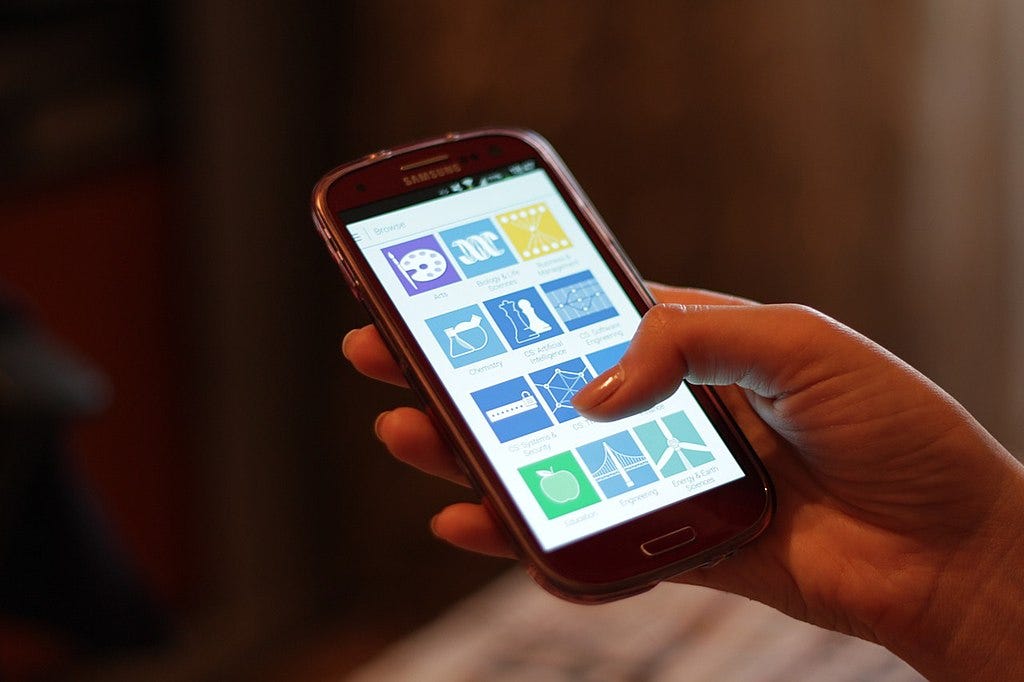Young women more prone to smartphone-induced anxiety
The negative impact of smartphones on mental health affects young women more than other people, suggests research presented at the 2025 European Congress of Psychiatry.

MADRID — Young women are more likely to experience social anxiety due to problematic smartphone use (such as psychological or behavioral dependence) than other people. This anxiety is linked to spending more time with their phones and a greater fear of being perceived in a negative manner, show survey findings.
“These results point to serious differences between genders, in that females are much more likely to suffer mental ill health at the hands of a smartphone,” said lead investigator Csibi Sándor, PhD, George Emil Palade University of Medicine, Târgu Mureș, Romania.
“Women may be more vulnerable to the social and emotional pressures associated with online environments, especially those involving social comparison, appearance-based feedback and constant connectivity,” Sándor told Medical News Insider.
“That said, the picture is more complex,” he added, noting that, “when it comes to smartphone-based gaming, it is actually men who are more prone to problematic use.”
Sándor continued: “What seems to unite these patterns is…using smartphones for pleasure, distraction or emotional escape. This kind of use, regardless of gender, is strongly associated with addiction risk. So the takeaway isn’t to place a tag on any one group, but rather to advocate for better digital literacy, helping people of all genders develop healthy tech habits and distinguish between purposeful versus compulsive use.”
Social anxiety and negative perception
To examine problematic smartphone use and mental wellbeing, the researchers studied 400 young adults with an average age of 25.9 years, of whom 73.2% were women. The participants completed a series of psychological questionnaires on their level of addiction to smartphone applications, mental and emotional health, and fear of being perceived negatively.
The results showed that the presence of excessive and problematic smartphone use was linked to a person’s gender, with young women more likely to experience social anxiety than other smartphone users.
Investigating further, the researchers found that young women had a significantly greater fear of being perceived negatively and spent significantly longer on their smartphone than other people, which accounted for much of the effect.
More mindful
“Nearly 100% of Generation Z own and use a smartphone,” commented Geert Dom, MD, PhD, President of the EPA, and Professor of psychiatry at the University of Antwerp and Medical Director of the psychiatric center Multiversum, Boechout, Belgium, who was not involved in the study.
He pointed out that numerous studies have already shown smartphones and social media are “factors in the increase in mental distress, self-injurious behaviour, and suicidality among this age group.”
“This is an area that must be given further attention so that any detrimental areas can be addressed quickly.”
Sándor said, however, that there have been some positive developments.
“Smartphone and social media companies are beginning to introduce more features that promote healthier digital habits,” such as screen time limiters, app-specific timers, especially for social media, and usage tracking reports.
“These tools can help users become more mindful of their habits and set boundaries,” but the “challenge, however, is awareness and uptake. These features are only helpful if people know about them and are motivated to use them.”
And, for Sándor, the responsibility around more mindful smartphone use “doesn't fall solely on individuals or tech companies, but on all stakeholders to create an ecosystem that supports healthy and balanced tech use.”
He suggested that “schools, community programs and even healthcare settings can play a role in raising self-awareness, especially among younger users, about how technology affects their well-being and what tools exist to manage it.”
“At the political level, there’s also space for action-such as integrating digital well-being into educational curricula or launching public awareness campaigns.”
No funding declared.
No relevant financial relationships declared.
Liam Andrew Davenport is a medical reporter with more than 20 years’ experience covering a wide range of specialties and topics in the field.




